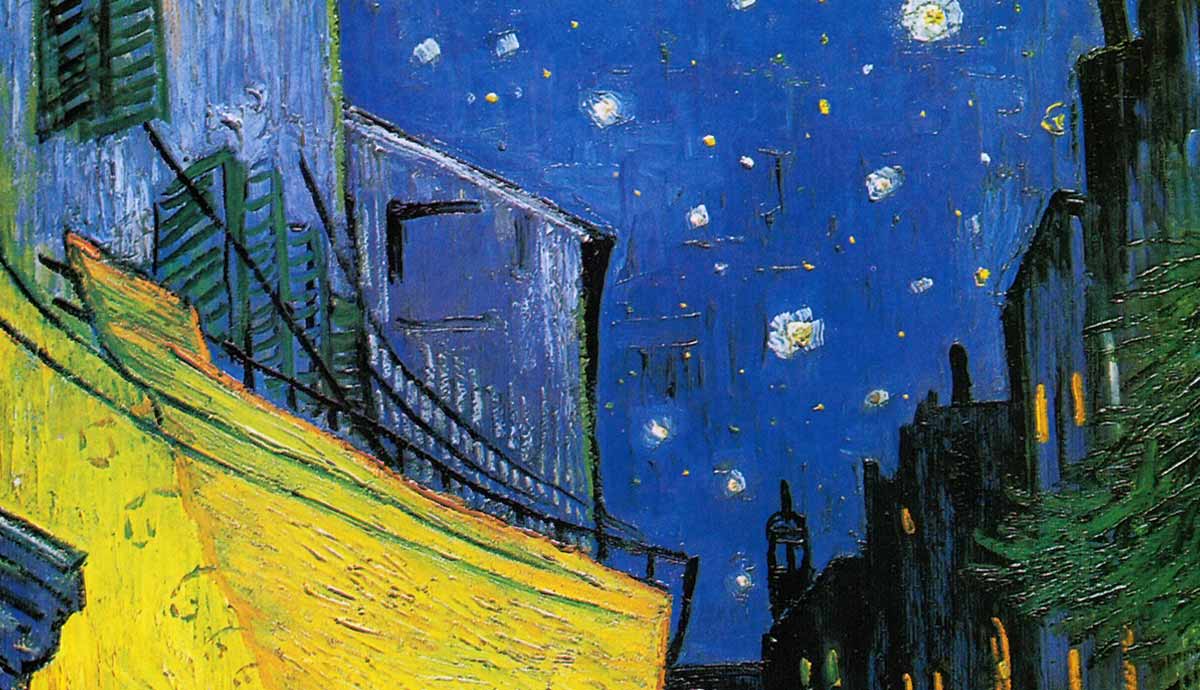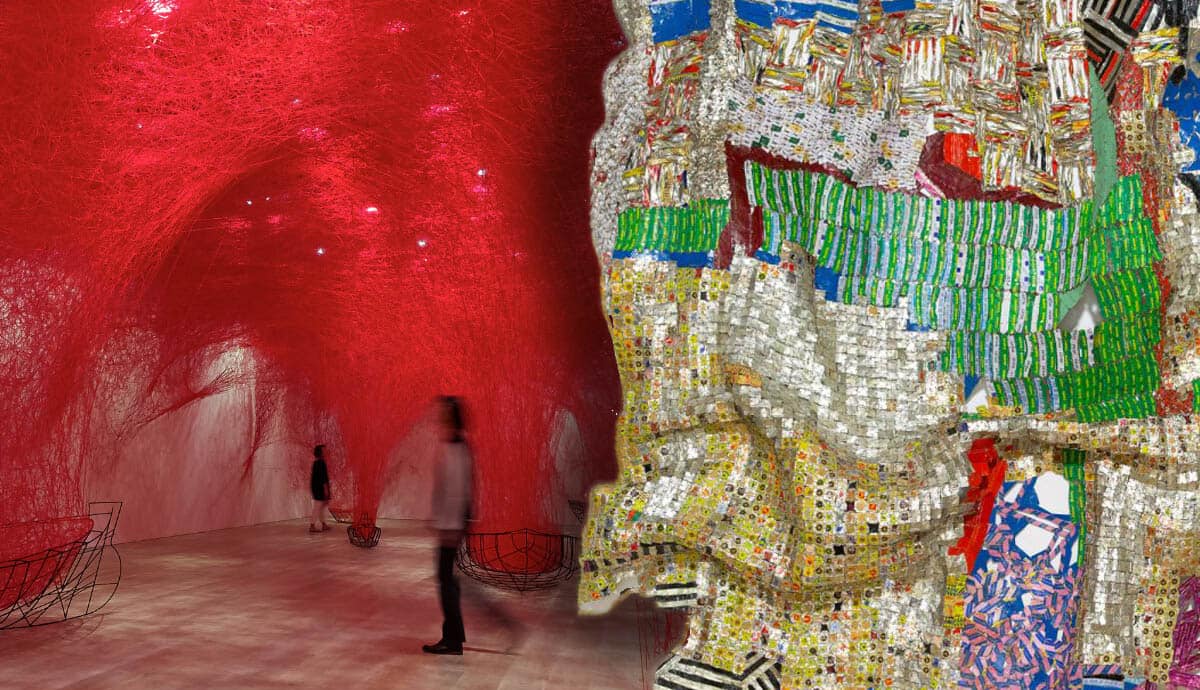
Few places around the world hold such an astonishing collection of Native American art as the American Southwest. This region is the ancestral home to several nations and Indigenous Peoples who have created award-winning and renowned spaces for visitors to enjoy their traditional and contemporary art. Below, you’ll find some of the best locations in the Southwest to experience the region’s deep-rooted Indigenous art and culture. From the heavenly open spaces of Monument Valley to the well-curated museums of Santa Fe, the American Southwest is an art lover’s paradise.
8. Indigenous Art at the Museum of Indian Arts and Culture

An incredible museum dedicated to Native American art is right in the center of Santa Fe in New Mexico. Located on the famous Museum Hill, the Museum of Indian Arts and Culture houses around 70,000 works by Native American artists, making it one of the largest Indigenous Art collections in the world. Inside the beautiful building, you’ll find revolving exhibits and galleries from thousands of years of Native American art history from the southwest to brand-new contemporary art. The museum hosts workshops, events, and outreach programs that help preserve, educate, and foster new talent in the southwest’s Indigenous communities and beyond.
The museum was built from a $2.7 million fund from the state of New Mexico in 1977. It was conceived as a way to showcase the impressive indigenous art collection of the nearby Laboratory of Anthropology, which at the time was the most comprehensive and methodically gathered collection of anthropological artifacts from New Mexico and the Southwest. The museum officially opened its doors in 1987.
On top of the revolving collections are weekly events like lectures, workshops, speeches, and live art demonstrations. Every third Wednesday of each month, the museum’s knowledgeable curators meet the public to identify any local Indigenous art pieces or artifacts that people bring in. Other fun activities include live music during community days and dances.
7. Heard Museum

Few museums dedicated to native American art can top Pheonix’s Heard Museum. Since 1929, this beautiful space has showcased works by Indigenous artists and worked to champion their work through educational programs and various events. A visit to the Heard Museum will take you through twelve galleries and a courtyard that hosts events and art festivals throughout the year. There are around 44,000 pieces of art, many of which go on display during the rotating seasonal exhibitions.
Dwight Bancroft Heard and Maie Bartlett Heard founded the museum in 1929 to house their enormous collection of global Indigenous art. After Dwight Heard’s death that same year, Maie Heard continued running the museum until she died in 1951. Since then, it has outgrown its place as a museum and become one of the great centers preserving classic pieces and fostering new modern artists and their work.
If you visit the museum in March, you can attend the annual Heard Museum Guild Indian Fair & Market. This special event is one of the world’s leading art markets for Indigenous works. You can buy all sorts of pieces from over 500 Indigenous artists and enjoy food and beverages prepared by local businesses. Ticket sales go directly to the not-for-profit Heard Museum.
6. Museum of Contemporary Native Arts

Few cities in the United States have as many museums, galleries, and education centers dedicated to Native American art and artists as Santa Fe. One of the most celebrated museums to see modern Indigenous art is the Museum of Contemporary Native Arts. The museum and its parent organization, The Institute of American Indian Arts, aim to be the top organization promoting indigenous arts and cultures around the world. The museum supports artists by hosting education fellowships, residencies, workshops, and events to give talented Indigenous artists access to materials and a platform for success.
On top of the cultural and educational leadership, the museum features a rotating exhibit of local and international Indigenous artists. Almost 10,000 works by artists such as Jean LaMarr, Lloyd Kiva, Lynnette Haozous, and many others are displayed inside. Once you enter the museum, the amount of fine art and priceless modern collections will ensure you stay for several hours. From film, ceramics, and paintings, to other traditional mediums like jewelry and sculptures, there’s an endless amount of art to experience.
5. Red Earth Art Center

Located in the heart of bustling Oklahoma City is the Red Earth Art Center. This special non-profit is one of the best places to see and buy Native American modern and traditional art. There are several galleries Inside the art center that feature a rotating selection of local and national Indigenous artists. You’ll find everything from travel-size hand-carved pieces to murals, textiles, and sculptures, all available for purchase.
On top of its incredible collection of Native American masterpieces is its world-famous festival known as the Red Earth Festival. This hugely popular festival is held every year in June and features powwows, art exhibits, competitions, and fun for the whole family. Tribes, nations, and artists from around the country come to take part in the exciting cultural event.
Another popular festival held at the center is FallFest, a public celebration of Oklahoma City Indigenous People’s Day. If you’re visiting the center during this October festival, you’ll get to experience parades, art shows, powwows, and dancing, with plenty of art vendors selling their work.
4. Taos Pueblo, New Mexico

Nestled in the arid and alluring foothills of the Sangre de Cristo mountains you will find Taos Pueblo and the modern city of Taos right next to it. The small town is one of the oldest communities in the United States, with a recorded history of over a thousand years. Amongst the Puebloan architecture and desert landscapes are well-curated art galleries and markets. You can purchase works by some of the region’s top Indigenous artists and see some of the most stunning architecture and facades in the United States.
Nearby in Taos City, which was founded in the 17th century by the Spanish, you can visit dozens of art museums and markets dedicated to the region’s Native American artists. Establishments such as the Millicent Rogers Museum feature huge collections of local Indigenous art.
Downtown Taos is full of art markets and vendors throughout the year. Perusing the center of town, you’ll meet local artists and find incredible pieces around every corner. Every autumn, you can experience the annual Taos Fall Arts Festival where hundreds of local artists come to share their work. There is also music, food, and cultural festivities.
3. Monument Valley

Few regions in the Lower 48 are as mesmerizing and energetic as Arizona and Utah’s Monument Valley. This stunning landscape is full of natural wonders, towering red-rock formations, and a long Indigenous history. Many travelers to Monument Valley will marvel at the natural scenery, only to find the cultural wonders even more breathtaking. The valley is home to the Navajo Tribal Park, a large stretch of Navajo land that’s full of sacred spaces.
The best place to find local Navajo artists and art vendors is along the shoulder viewpoints of Highway 163. Here, you can find exquisite handmade carvings, jewelry, paintings, and everything in between.
If you want to look at the area’s historical sacred art, you can book a tour that will take you deep into the valley. Expert guides will take you through the ancestral spaces and geologic marvels covered in ancient polygraphs. For anyone interested in art history, this tour is an absolute must.
2. Salt River Art Trail

Just a few minutes east of the big city of Phoenix is Scottsdale, Arizona’s Salt River Art Trail. This trail starts at the Talking Stick Entertainment District and continues along Pima Road, through the Salt River Pima-Maricopa Indian Community. Here, members of the Maricopa and Pima People run several galleries and art stores that showcase their traditional art.
You’ll find incredible photography, paintings, sculptures, and displays by local artists like Dwayne Manual, Anthony Collins, Jeffrey Fulwilder, and many more. Starting at the Talking Stick Entertainment District, you’ll see the Fulwilder’s popular exhibitions at the Pima Center and Dwayne Manuel’s Gifts of a River at the Discover Salt River Visitor Center. Just down the road is the Arizona Boardwalk, where you can find beautiful works by Jacob Butler before looping down to the Talking Stick Resort to experience a revolving collection from local artists.
Further south, head to the Residence Inn by Marriott and the Courtyard by Marriott to see pieces by Collins and Fulwilder. From here, end your tour at the fantastic Huhugam Ki Museum. Here, you can check out traditional architecture and a community garden outside and weavings, paintings, and pottery inside the well-curated museum.
1. Indigenous Art at the Hopi Arts Trail

In the high desert of northern Arizona, there is a 70-mile stretch of State Route 264 known as the Hopi Arts Trail. This beautiful drive is home to Hopi artists and art galleries that sell and showcase Hopi artworks. The trail starts in the town of Moenkopi on State Route 264, just past Tuba City, AZ. From here you’ll pass traditional homes, many of which have home galleries and roadside shops. Here, you can find all kinds of traditional hand-made Hopi art like Katsina carved dolls, baskets, silverwork, and traditional pottery.
Although you can drive alone, it’s advisable to hire a local guide who will educate you about Hopi culture and introduce you to local artists. You can find guides at the Moenkopi Legacy Inn. The Hopi Reservation stretches out over 1.6 million acres in beautiful northern Arizona. The trail offers many local artists a chance to sell their artworks and educate visitors about their culture, history, and way of life. For visitors, it’s a chance to learn about the Hopi People and support their artists.










